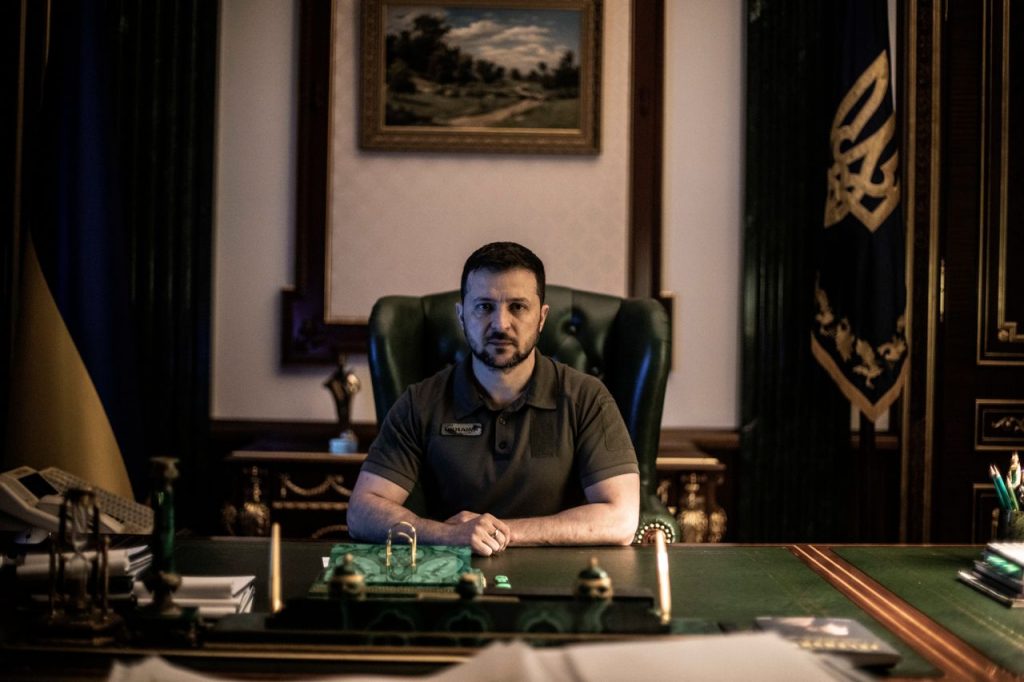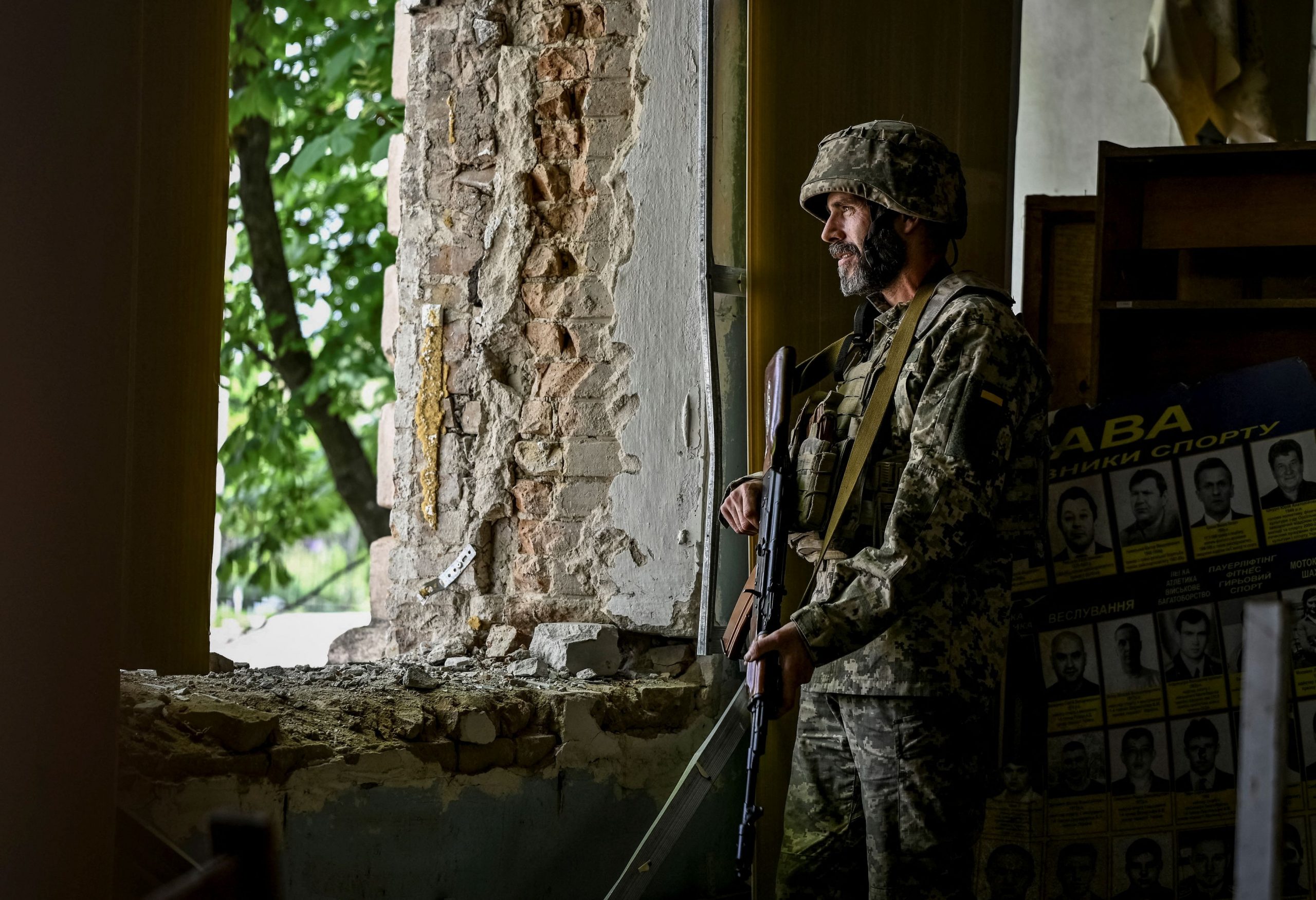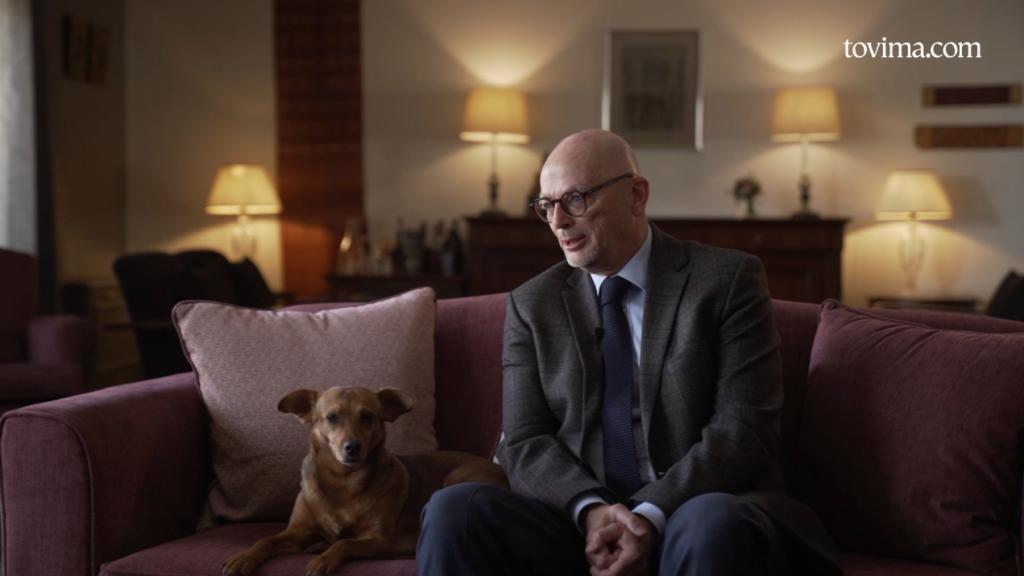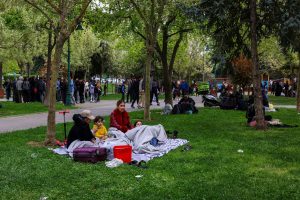Since Russia invaded Ukraine in 2022, Ukraine’s leaders have insisted that Russia needs to be driven out of all Ukrainian territory before any peace talks could begin.
Now, with Russia continuing to make slow gains on the battlefield and Western support for Ukraine showing signs of fatigue, Ukraine may need to come up with a more realistic plan, at least for the next year of the war, according to European diplomats.
The West still backs Ukrainian President Volodymyr Zelensky ’s long-term stated aim of taking back control of its territory. But some European diplomats say Ukraine needs to be more pragmatic in its wartime aims and strategy. That could help Western officials advocate to their respective voters the need to funnel arms and aid to the country.
U.S. Secretary of State Antony Blinken and U.K. Foreign Secretary David Lammy will travel to Ukraine on Wednesday to meet with Ukrainian officials in part to discuss how best to define a Ukrainian victory and what aid it will need to achieve that, according to officials. Several other senior U.S. and European officials have been in Kyiv in the past two weeks.
The talks point to a recurring source of tension between Kyiv and the West: reconciling the desire to evict Russian President Vladimir Putin ’s forces from Ukraine with the military reality on the ground . Senior European officials say Kyiv has been told that a full Ukrainian victory would require the West to provide hundreds of billions of dollars worth of support, something neither Washington nor Europe can realistically do.
Blinken said Tuesday that his trip was in part to see “exactly how the Ukrainians see their needs in this moment, toward what objectives and what we can do to support those needs.” Blinken said he and Lammy would report back to President Biden and U.K. Prime Minister Keir Starmer , who would then discuss the matter when they meet on Friday. That could be the prelude to the U.S. and U.K. signing off on Ukraine’s use of long-range missiles to hit targets inside Russia, but officials caution no final decision has been made.
In Washington, White House National Security Council spokesman John Kirby said the trip to Kyiv wasn’t about arm twisting Ukraine into talks. “Certainly a negotiated end is the most likely outcome here, but when that happens, and under what conditions and circumstances, that’s going to be up to President Zelensky.”

By 2022, Zelensky was a wartime president. He is shown in the presidential office on July 22, 2022. PHOTO: MANU BRABO FOR THE WALL STREET JOURNAL
Both Russia and Ukraine have said they are open to cease fire or peace talks , though both sides seem far apart from any such meeting. Ukraine has insisted that Russian troops must exit Ukraine before going to the negotiating table. In June, the Kremlin demanded Ukraine cede the territory it had lost and give up additional land, and drop its ambitions to join the North Atlantic Treaty Organization.
Western officials say that while Putin claims he wants to start peace negotiations, it isn’t in good faith and Putin continues to believe he can make the military gains needed to crush Ukraine’s independence, adding that continued Western military support is vital.
The diplomatic push comes ahead of what could be a critical trip to the U.S. for Zelensky. He has pledged to set out what he calls a victory plan during his visit to the U.S. for the United Nations General Assembly this month. Zelensky has said he wants to meet with presidential candidates Donald Trump and Kamala Harris to win their backing. It isn’t clear if those meetings will happen.
“I hope that I will have an opportunity to show this plan to Biden and potential U.S. presidential candidates Harris and Trump and get feedback,” Zelensky said in Italy recently.
Western diplomats continue to say the U.S. presidential election remains critical in terms of how much U.S. assistance Ukraine can expect in the short term. Yet few think Western support can continue at current levels for years to come.
Zelensky’s planned new peace proposal is the latest sign that he is adapting his public posture, which until now has been focused on winning back all of Ukraine’s territory before any peace talks start. Over the summer, Ukraine considered talks with Russia on limiting attacks on each other’s energy infrastructure, Ukrainian, Russian and Western officials have said.
Recent polls have shown an incremental increase in the number of Ukrainians ready for peace negotiations, but that just over half the population remains in favor of fighting until Ukraine has taken back all its territory. Acknowledging that the fighting could stop with Russia holding swaths of Ukrainian territory would be an impossible political risk for Zelensky, says Oleksiy Kovzhun , a political analyst and host of a popular online talk show.
“It’s political suicide and it cannot happen,“ Kovzhun said.
Jonathan Eyal , an associate director at the Royal United Services Institute, a British defense think tank, said it is good to talk privately to Ukraine about its challenges and the shape of what victory means.
“But we are nowhere near there and we must be careful that this discussion is not interpreted as pulling the plug on Ukraine,” he said.
Some of Ukraine’s closest allies, such as Lithuanian Foreign Minister Gabrielius Landsbergis , have warned for some time that Western determination to help Ukraine win back its territories has been slipping. He has added his voice to Ukrainian calls for speedier military deliveries and a relaxation of rules restricting the use of Western weapons to target Russia.
Blinken’s visit to Kyiv comes at a delicate time for Ukraine, amid slackening support for continued funding for the war in the West and the onset of the Ukrainian winter. It also comes as Russian forces continue to make slow but costly gains across the front.
Since the beginning of the year, Russia has bombarded Ukraine’s electricity grid, raising the prospect of a mass migration of Ukrainians fleeing their unheated homes in the coming months, said Eric Green , a nonresident scholar at the Carnegie Endowment for International Peace who until last year served as Biden’s top Russia adviser on the National Security Council.
Although the surprise move by Ukraine to enter Russian territory in the Kursk region has been celebrated inside Ukraine as a humiliation for Putin, concerns are growing in the West that it could be a drain on Kyiv’s ability to defend itself in the long run, said Green.
Ukrainian officials had hoped that the offensive would force Russia to withdraw troops critical to the offensive inside Ukraine. But indications are growing that Moscow hasn’t taken the bait, and the Russian offensive is continuing to take strategic territory inside eastern Ukraine.
The offensive was “helpful to Ukraine because it showed that Ukraine can still fight and spring surprises,” said Green. But in the West, some officials “are just raising a lot of concerns that it’s just like a sugar high that’s going to be regretted in six to eight weeks.”
Andrew Weiss , vice president for studies at the Carnegie Endowment for International Peace, said that Kyiv’s “partners surely are worried about Ukraine’s ability to withstand a full-scale Russian military onslaught.” However he said that Western powers’ ability to push Ukraine to make concessions it is opposed to is limited.
“The Kursk operation is yet another reminder that the Ukrainians retain lots of audacity and desire to surprise even their Western partners,” he said.
The six-month struggle to win backing in Congress for a $60 billion military aid package strained ties between Zelensky and the Biden administration. Last month, Germany slashed its planned military aid budget for Ukraine for 2025 after Chancellor Olaf Scholz had spent much of the past year demanding European partners increase their military assistance for Kyiv.
U.K. Defense Secretary John Healey told Parliament on Monday that Russian artillery is outfiring Ukraine by at least three to one, and Russia is also conscripting or recruiting 400,000 additional soldiers this year.
Russia is also getting additional aid from Iran, North Korea and especially China. The U.S. and the U.K. announced sanctions on Iran and Russia on Tuesday following what they said were the first deliveries of Iranian ballistic missiles to Moscow for the war. China in particular is providing components to help build Russian weapons in return for submarine technology, Deputy Secretary of State Kurt Campbell said Tuesday.
Write to Max Colchester at Max.Colchester@wsj.com and Laurence Norman at laurence.norman@wsj.com



